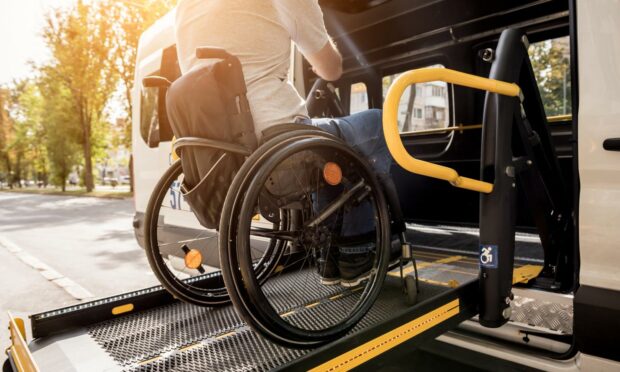I am a disabled person. I consider disability to be the unnecessary restrictions imposed upon me because of how society is organised.
I have health conditions which are categorised as “life-limiting” and “progressive”. My strength, respiratory function and swallowing will continue to deteriorate.
Physical movement is primarily limited to my fingers. I require a power wheelchair, 24-hour personal assistance from trained professionals, and various medical interventions every day.

I am also an academic who focuses on the extensive and unnecessary restrictions placed on the disabled people’s community. These restrictions are widespread – they permeate our education system, health service, labour market, housing infrastructure, and transport. Disabled people are marginalised and people within influential positions debate and discuss our value, worth, and question our existence in society.
I say all this to explain how I approach the issue of “assisted dying” – in a way that many readers will not.
Assisted dying would undermine existing disability policy
I believe the introduction of assisted suicide in the UK will have a direct impact on me as a person, and my community as a whole – on how we are viewed and valued, and on the services and support available to us in the years ahead. It is my belief that the practice would undermine existing disability policy and legislative frameworks that aspire to protect disabled people’s rights.
The United Nations, human rights groups, and Disabled People’s Organisations have highlighted the social injustices encountered by disabled people. Legislative and policy interventions should focus on improving opportunities to participate in society and access sufficient healthcare across the life course. But in countries such as Canada that have legalised assisted suicide, the treatment of disabled citizens and their access to such services has declined.
Canadian doctors testify to disturbing changes in the way disabled people are now treated by the medical establishment. One doctor recounted how she has encountered “story after harrowing story of disabled people sharing their experiences being demeaned, disempowered, and denied dignity by the healthcare system”.
“I learned more about power in society and who is written off and who gets given the benefit of the doubt,” she said.
Disabled people’s human rights violations are real. Disabled people are denied opportunities to participate in their communities. Disabled people do not receive sufficient support to have a valued, respected role in society. If the assisted dying bill was not to pass, these issues would still exist. If the bill was to pass, these issues would likely be compounded.
Be wary of ‘legislative creep’
In writing this, I am not ignoring the prevalence of pain, distress, and fear that can – sometimes – accompany health conditions, illnesses, and impairments. I am aware this exists and I experience it, personally. I am arguing that we cannot pass legislation and policy measures on the basis of individual, anecdotal, experiences. We must always consider the broader contexts associated with policy and law.
In this regard, there are several major concerns. Firstly, the legislation would likely be subject to legislative “creep”, where inclusion criteria is expanded to permit more people to access assisted dying mechanisms.
“Assisted dying would inevitably result in patients thought to have less than six months to live ending their lives by suicide when they would, in fact, have gone on to live much longer
In other nations, similar laws were quickly extended to allow disabled people and people with mental health conditions to access assisted death. What possible assurance can lawmakers give that this will not come about in the UK five, 10 or 15 years down the line? They are opening the door to this if they agree to a narrow change.
The UK assisted dying proposals use arbitrary definitions that focus on individuals in the “last six months of their life”. It is difficult to determine timeframes for expected deaths, given the continued changes to health outcomes, emergences in medical technology, and advancements in health care provision. Access to treatments and support also differs across localities, which will affect health outcome expectations.
Assisted dying would inevitably result in patients thought to have less than six months to live ending their lives by suicide when they would, in fact, have gone on to live much longer. This is a significant ethical dilemma.
We need answers on avoiding coercion and duress
Finally, the necessary infrastructure to carry out the proposed assisted dying mechanisms also remains non-existent. No discussion has taken place on the time and resource allocation required to complete the declaration outlined in the bill, and to carry out due diligence throughout the procedures. It remains ambiguous as to how to determine the absence of coercion or duress when applications are made.
The dangers associated with this proposed change are massive. I urge politicians not to open the door to it.
Once this Pandora’s box is opened, it could lead to serious and widespread harms, affecting the most marginalised in society. Let’s work together to establish a better way for those with terminal illness and others implicated by this proposed change in the law.
Dr Miro Griffiths is a Leverhulme Research Fellow in Disability Studies at the University of Leeds, a policy adviser and spokesperson for the Better Way campaign

